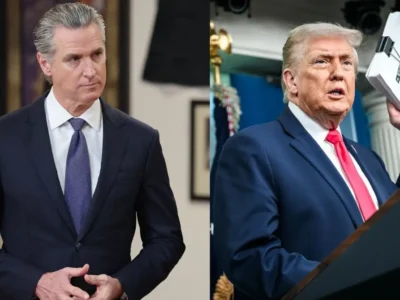Science Under Siege
There are troubling indications of a campaign to hide scientific information from the public.
On January 25, Reuters reported that EPA had been ordered to pull down its climate change page. That didn’t end up happening, but all use of social media was banned and some documents were axed, such as an FAQ about the scientific consensus. Meanwhile, data on international carbon emissions has vanished from the State Department page. For the past decade, the End of Term project has made an effort to create an archive of government information before presidential transitions. Fears of a broader information purge have now prompted a massive document request under the Freedom of Information Act, along with private attempts to harvest data on climate change and energy to preserve it on the other sites.
Perhaps even more of a concern, the Trump transition team ordered government researchers to submit papers for internal review before circulating or submitting them to journals. The head of communications for the transition team told NPR that research will have to pass a vetting process before release “so that the voice coming from the EPA is one that’s going to reflect the new administration.” He wouldn’t commit himself on whether this internal censorship would be a permanent requirement. This policy contradicts the agency’s current scientific integrity policy, which bans “all EPA employees, including scientists, managers and other Agency leadership from suppressing, altering, or otherwise impeding the timely release of scientific findings or conclusions.” But it remains to be seen whether the current scientific integrity policy will survive under the new regime.
We don’t know yet how all of this will shake out. As the head of the American Association for the Advancement of Science said, “The gag orders in some of the departments might be naive mistakes by inexperienced transition people. They might be trial balloons. If they’re trial balloons of a policy about to be put in place, we want it known, far and wide, that that’s unacceptable.” But there are reasons to fear an assault on scientific integrity and government transparency. We do know that the last conservative Canadian government made a similar attempt to muzzle scientists, which its successors dismantled. So this isn’t unprecedented.
The Administration has shown its desire to shut down the free flow of information in other ways. Trump personally berated the head of the Park Service for retweeting photos showing that Trump’s inaugural audience was smaller than Obama’s. He then demanded that the Park Service produce photos supporting his vehement belief to the contrary– which turned out to be impossible, given that Trump’s belief was absolutely false. Trump has also called the employment data of the Bureau of Labor Statistics “phony,” a charge the American Enterprise Institute called “flatly untrue.” In the meantime, Steve Bannon, Trump’s chief strategist said that the media should just try shutting up entirely for a while. Trump himself has said he was in “a running war” with the media and called journalists “among the most dishonest people on earth.”
The common theme here is a desire to suppress information that doesn’t fit Trump’s narrative. It’s hard to imagine that the Administration is going to be happy with public posting of data and research that contradicts Trump’s view of climate change. Will Trump tolerate objective scientific research any more than he tolerates photos that show inconvenient truths?
Fortunately, there are some legal rules that apply in these situations. First, by statute, government whistleblowers have the right to communicate to members of Congress and to the Inspectors General. Second, under the First Amendment, government employees also have the right to speak their minds on their own time, except where doing so would cause workplace disruption. Third, if information remains in the government’s hands, the Freedom of Information Act protects public access. (In terms of research papers, the only excuse for concealing them from a FOIA request seems to be the exemption for intra-agency deliberations, but that seems like a stretch.) Finally, although it’s probably not enforceable in court, the Information Quality Act, a statute enacted by conservatives in Congress, sets standards of objectivity for government information sources. While it was originally intended to hamper government regulation, it could be a useful tool against science denial.
However, it’s not clear whether there’s enough protection for government documents to protect against destruction of data or research results. New legislation to prevent destruction of government documents may be required. We shouldn’t have to depend on private archiving efforts to save valuable information and keep it available to the public. We also shouldn’t have to rely on administrative guidance to protect government scientists from censorship. In short, there’s a real need for congressional action, though it probably won’t come from the current Congress.
It’s worth remembering that the phrase “politically incorrect” originated in the Communist Party for statements that, whether or not they were actually true, violated Moscow’s dictates. Some of the early signs from the Administration look dangerously close to that kind of political correctness.
Reader Comments
One Reply to “Science Under Siege”
Comments are closed.






HISTORY LESSON: Rachel Carson was the greatest environmental scientist in the 20th century, and her 1962 book “Silent Spring” motivated us to end the destructive era of DDT. This was in spite of the fact that she was attacked by other scientists who were controlled by the power of money that Ike gravely warned us about in his 1961 Farewell Address. No environmentalist has achieved anywhere near her magnitude of success since.
We must produce another Rachel Carson to motivate us with the greatest sense of urgency today, because environmental scientists since Rachel have wasted far too much time failing to motivate us, possibly so much time already that future quality of life shall become unacceptable or worse in this century .